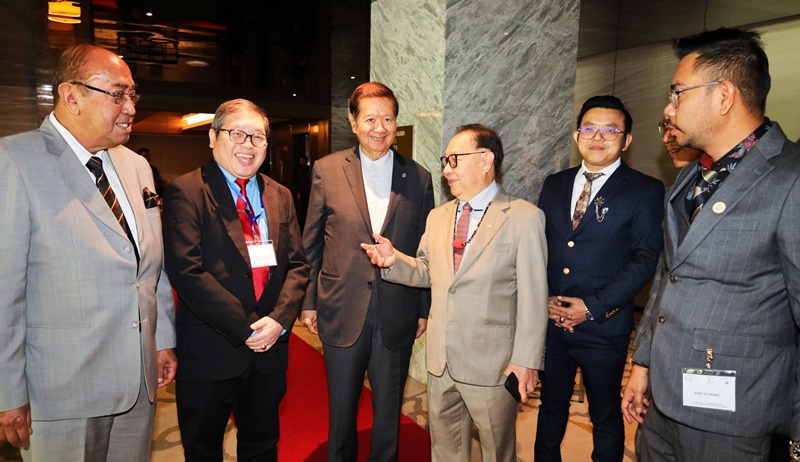KOTA KINABALU: The State Government is committed to future-proofing the palm oil
industry, which is Sabah’s most significant export commodity, contributing 22 per cent
or RM6.22 billion to the state revenue from 2018 to 2023.
Chief Minister Datuk Seri Panglima Haji Hajiji Haji Noor said Sabah, as a powerhouse
in Malaysia’s palm oil industry, is aware of the challenges to ensure the industry remains
relevant in the future.
“Hence, the government needs to be ready and must introduce innovative approaches
to help the industry achieve and meet the national and international certification
requirements,” he said at the World Palm Oil Conference 2024 – “Future-Proof The Palm
Oil Industry – Enhancing Sustainability, Innovation and Growth” at the Hilton Hotel here
today.
Deputy Chief Minister/Agriculture, Fisheries and Food Industry Minister Datuk Seri
Panglima Dr Jefffrey Kitingan delivered the Chief Minister’s speech.
“As we look to the future, innovation and sustainability must remain at the heart of our
efforts. Sabah is already leveraging technology to boost productivity and reduce the
environmental footprint of palm oil production,” he said.
Hajiji said precision agriculture, mechanisation, and advanced pest management
techniques were among the innovations being implemented to enhance yields and
sustainability.
In 2023, he said Sabah produced 4.5 million tonnes of crude palm oil (CPO) and
remained the largest CPO producer in the country due to superior fruit yields and oil
extraction rates.
“We operate 128 mills across the state, with a capacity to process up to 34.7 million
tonnes of fresh fruit bunches (FFB) annually. Our oil extraction rate (OER) of 20.4 per
cent is the highest in the country.
“Our industrial hubs are critical to sustaining this growth. The Sabah Government owns
the Lahad Datu Palm Oil Industrial Cluster (POIC) on the east coast of Sabah, which
covers 4,400 acres. It supports light, medium, and heavy industries.
“The POIC has specialised ports for bulk cargo, liquid cargo, and containers. These ports
are located in a naturally deep harbour, capable of accommodating large cargo vessels,”
he said.
In addition, the Chief Minister said the 2,810 acres Sawit POIC in Sandakan, also on
Sabah’s east coast under Sawit Kinabalu Sdn Bhd management, was designed to
encourage investments in downstream palm oil manufacturing.
“Both POICs are strategically located near oil palm estates and resource-rich areas in
the BIMP-EAGA (Brunei-Indonesia-Malaysia-Philippines East ASEAN Growth Area).
These hubs are key infrastructure for industrial development on Sabah’s east coast,” he
said.
Hajiji said Sabah’s palm oil industry has a pivotal role in reducing greenhouse gas
emissions and supporting Malaysia’s goal of achieving net-zero emissions by 2050 in
line with the National Energy Transition Roadmap.
Sabah contributed 25.75 million tonnes of biomass from palm oil milling and plantation
activities alone, providing a tremendous opportunity for renewable energy and
innovation last year.
“We introduced the Oil Palm Biomass Industry policy earlier this year that will soon
regulate biomass export and production, ensuring that Sabah benefits from this valuable
resource.
“We are confident that with strategic collaboration between the public and private
sectors, we can further position Sabah as a global leader in sustainable palm oil
production,” he said.
The Chief Minister also called upon all stakeholders, investors, businesses, and
policymakers to join the State Government in making Sabah the global hub for
sustainable palm oil production.
“By investing in downstream processing, adopting advanced technologies, and
upholding the highest sustainability standards, we can ensure that this vital industry
continues to thrive while contributing to a greener, more prosperous future for all,” he
said.-pr/BNN






